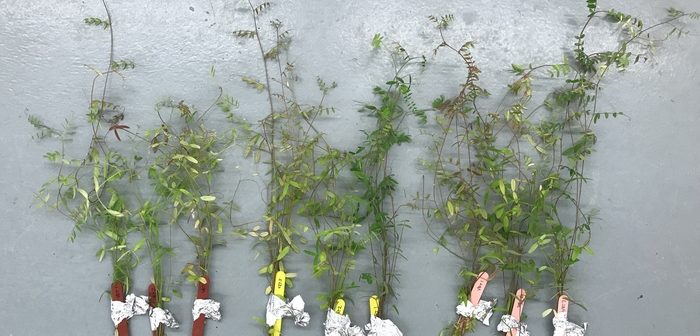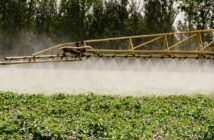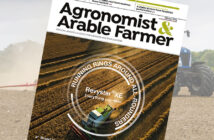Adding beneficial fungi to cover crops when planting can significantly enhance soil health and efficiency in the long-term.
UK farmers are increasingly switching from leaving the ground fallow to including cover crops in their rotations to reduce soil erosion and nutrient leaching whilst improving soil structure and organic matter content. Cover crops also have the excellent ability to act as a ‘host’ for mycorrhizal fungi which helps to build soil biology, benefiting the cover crop itself and improving the health and yield of follow-on crops.
PlantWorks, which is the UK’s only mass producer of mycorrhizal fungi, produces a range of products for agriculture, developed by a qualified group of microbiologists and bacteriologists through collaboration throughout the UK’s academic base.
The company has carried out extensive research over the years looking at how Mycorrhizal Fungi (MF) and Plant Growth Promoting Rhizobacteria (PGPR) have a positive effective on the bio mass of cover crops both in pot and in field trials*.
Robert Patten: Managing Director of PlantWorks said: “We have shown consistently that cover crops are an excellent host for mycorrhizal fungi and due to the high seed density and biodiversity of the blends that inoculation at modest levels increases the mycorrhizal community levels in the field to the ultimate long term benefit of the soil and the direct benefit to the follow on crop.”
Cover crops inoculated with MF and PGPR are an effective and practical way of improving soil health and biological function. MF in particular plays a significant role in acquiring and transporting nutrients and water to plants, with a root system of a fully colonised plant having over 700 fold the root absorbing capacity than a non-mycorrhizal root system. In an environment where much of modern farming has depleted native mycorrhizal levels, farmers who seek to manage their soil health and use cover crops in their rotations can achieve even greater value from them by ensuring they are pre blended with mycorrhizal fungi”
PlantWorks’ BioAgronomist, Natallia Gulbis explains how the company’s trials have made a positive impact on rotation programmes: “We have shown an average increase in biomass of 7% across 11 different mono cultures of cover crops. In the field work samples have been analysed using laboratory staining techniques and have shown an increase in colonisation of treated plants against untreated of over 200%. The increased colonisation is evidence that symbiosis is functioning to both deliver more nutrients and water to cover crops but also to drive the MF hyphae deep into the ground where it will sporulate and regenerate, improving biological soil function over a whole rotation programme.
PlantWorks’ provides two granular MF products and a comprehensive range of ‘tuned’ liquid PGPR products under its Smart Rotations brands, SR 1,2 and 3. SR2 which is designed for use with cover crops, is available for pre blending from most major seed suppliers including Kings Seeds, Cotswold and Hurrells.
The role of mycorrhizal fungi and PGPR in farming is well understood and all major agronomy companies now offer soil programs that seek to manage long term soil health. If you wish to understand more about the role of microbes in modern farming ask your agronomist about the SMART ROTATIONS range of both MF and PGPR.




